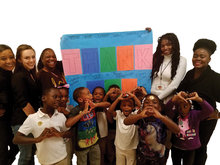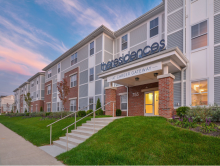0
News Article
Community: Youth
Jun 29, 2017
One Summer Chicago Plus is a jobs program designed to reduce violence and prepare youth living in some of the city’s highest-violence neighborhoods for the labor market. This study was carried out over the summer of 2013 in partnership with the Chicago Department of Family and Support Services. It found that the program, which provided a six-week, minimum-wage job for 25 hours a week, reduced the number of violent-crime arrests for participants by 33 percent over the subsequent year. The One Summer Chicago Plus 2013 study—accompanied by a long-term follow-up of the 2012 program—closely examines the two to three years following the six-week program and finds that the reduction in violent-crime arrests is not driven simply by keeping participants off the streets during the summer. In fact, the decline in violence remains significant when the summer is ignored entirely.
Researchers did find, however, that the program had no significant impacts on schooling outcomes or engagement, nor did it have a positive impact on formal labor sector employment for all of the participants after the fact. The authors do note that it is possible that significant labor market effects will develop past the three-year window examined in the study.
Authored by: UNIVERSITY OF CHICAGO URBAN LABS
Topics: Child welfare, Community development, Criminal justice, Out-of-school time, Partnerships, Preventative care, Safety, Youth
 Shared by Housing Is
Shared by Housing Is
Housing Is posted a
on Oct 15, 2020
UNIVERSITY OF CHICAGO URBAN LABS
One Summer Chicago Plus is a jobs program designed to reduce violence and prepare youth living in some of the city’s highest-violence neighborhoods for the labor market. This study was carried out over the summer of 2013 in partnership with the Chicago Department of Family and Support Services.
0
News Article
Community:
Mar 18, 2019
It’s a prescription guaranteed to develop healthy brains, refine motor skills and prepare kids for school, doctors say. But few parents expect a physician to hand their children a book at their first wellness checkup at Nationwide Children’s Hospital in Columbus.
Authored by: Alissa Widman Neese for The Columbus Dispatch
Topics: Child welfare, Early childhood, Education, Health, Literacy, Low-income, Partnerships
 Shared by Housing Is
Shared by Housing Is
Housing Is posted a
on May 30, 2019
Alissa Widman Neese for The Columbus Dispatch
It’s a prescription guaranteed to develop healthy brains, refine motor skills and prepare kids for school, doctors say. But few parents expect a physician to hand their children a book at their first wellness checkup at Nationwide Children’s Hospital in Columbus.
0
News Article
Community:
Apr 4, 2019
The nonprofit LIFT Orlando and AdventHealth have started construction on a “first of its kind” early learning center in the long-neglected West Lakes neighborhood south of Camping World Stadium, with an opening expected by August. The center will provide basic education as well as health and wellness programs, an on-site doctor or advanced nurse practitioner, mental health counseling and other services beyond the classroom. It can enroll up to 220 children from age 6 weeks to 5 years, with half of the openings reserved for kids from the West Lakes area, who will be accepted regardless of their families’ ability to pay.
Authored by: Kate Santich for Orland Sentinel
Topics: Child welfare, Early childhood, Education, Health, Low-income, Partnerships, Place-based
 Shared by Housing Is
Shared by Housing Is
Housing Is posted a
on Apr 4, 2019
Kate Santich for Orland Sentinel
The nonprofit LIFT Orlando and AdventHealth have started construction on a “first of its kind” early learning center in the long-neglected West Lakes neighborhood south of Camping World Stadium, with an opening expected by August.
0
News Article
Community:
Oct 1, 2018
When children get sick from poor living conditions inside their rundown apartments, they miss school. And when 95 percent of students of one school live in the same apartment complex—where evictions are routine and black mold is rampant—classrooms are often left empty.
Authored by: Jamie Hwang for the American Bar Association Journal
Topics: Attendance, Child welfare, Education, Health, Housing, Low-income, Partnerships, Place-based, Youth
 Shared by Housing Is
Shared by Housing Is
Housing Is posted a
on Mar 11, 2019
Jamie Hwang for the American Bar Association Journal
When children get sick from poor living conditions inside their rundown apartments, they miss school. And when 95 percent of students of one school live in the same apartment complex—where evictions are routine and black mold is rampant—classrooms are often left empty.
0
News Article
Community:
May 15, 2018
Since federal public housing assistance was first created in 1939 amid the Great Depression, public housing advocates have struggled with how to move low-income families to higher-opportunity neighborhoods, typically defined as neighborhoods with less poverty (though experts argue there are other ways to measure opportunity, including quality of schools and access to public transportation, and KCHA uses a broader “opportunity index” to compare locations). The Moving to Opportunity program, a federal demonstration in the 1990s, documented outcomes of families moving to neighborhoods with lower poverty rates. The program didn’t show immediate health and economic gains at its conclusion, but in 2015, a landmark paper by Raj Chetty and others showed that for children who moved before the age of 13, the economic and social gains were dramatic. Not coincidentally, 12 and younger was the target age for kids participating in the KCHA opportunity moves.
Authored by: Rebecca Gale for Slate
Topics: Child welfare, CLPHA, Early childhood, Education, Mobility, MTW, Pacific Northwest, Partnerships
 Shared by Mica O'Brien
Shared by Mica O'Brien
Mica O'Brien posted a
on Jan 18, 2019
Since federal public housing assistance was first created in 1939 amid the Great Depression, public housing advocates have struggled with how to move low-income families to higher-opportunity neighborhoods, typically defined as neighborhoods with less poverty (though experts argue there are other wa
0
Webinar
Community:
Dec 17, 2018
Webinar slide deck that provides a brief overview of FUP, building blocks of successful FUP voucher implementation, facilitated panel on increasing impact and enhancing FUP operations, and other opportunities and resources.
Authored by: CSH: 1 Roof and CLPHA
Topics: Child welfare, CLPHA, Foster care, Funding, Housing, Legislation & Policy, Low-income, Partnerships, Preventative care, Safety, Supportive housing, Youth
 Shared by Mica O'Brien
Shared by Mica O'Brien
Mica O'Brien posted a
on Dec 18, 2018
Webinar slide deck that provides a brief overview of FUP, building blocks of successful FUP voucher implementation, facilitated panel on increasing impact and enhancing FUP operations, and other opportunities and resources.
0
Webinar
Community:
Watch this recording of our live session where Senior Content Manager, Kama Einhorn, talks about resources from Sesame Street's Traumatic Experiences topic page.
Authored by: Sesame Street
Topics: Child welfare, Low-income, Mental health, Partnerships
 Shared by Mica O'Brien
Shared by Mica O'Brien
Mica O'Brien posted a
on Dec 12, 2018
Watch this recording of our live session where Senior Content Manager, Kama Einhorn, talks about resources from Sesame Street's Traumatic Experiences topic page.
0
Webinar
Community:
Oct 9, 2018
CLPHA’s Education Working Group hosts a webinar with Bright by Text, a texting platform that connects caregivers with tools for improving educational outcomes for children. Bright by Text’s President and Senior Program Manager share information about their partnerships with housing authorities and non-profit housing providers across the country, providing insight into the benefits of connecting with residents through technology. CLPHA members who work with Bright by Text outline their respective initiatives and discussed local program goals.
Authored by: CLPHA
Topics: Child welfare, CLPHA, Dual-generation, Early childhood, Family engagement, Health, Home visiting, Housing, Housing Is Working Group, Partnerships, Place-based, Preventative care, Safety, School-readiness
 Shared by Mica O'Brien
Shared by Mica O'Brien
Mica O'Brien posted a
on Oct 10, 2018
CLPHA’s Education Working Group hosts a webinar with Bright by Text, a texting platform that connects caregivers with tools for improving educational outcomes for children.
0
News Article
Community:
Sep 21, 2018
A children’s hospital in Columbus, Ohio, is trying to treat a difficult patient: Its own struggling neighborhood.
Authored by: Laura Bliss for CityLab
Topics: Affordable Care Act, Child welfare, Health, Housing, Low-income, Midwest, Partnerships
 Shared by Mica O'Brien
Shared by Mica O'Brien
Mica O'Brien posted a
on Sep 25, 2018
A children’s hospital in Columbus, Ohio, is trying to treat a difficult patient: Its own struggling neighborhood.
1
News Article
Community:
Aug 19, 2018
A body of evidence points to a link between living in areas of concentrated poverty and health.
Authored by: Paul Chisholm for NPR
Topics: Child welfare, Community development, Health, Housing, Low-income, Medicaid / Medicare, Metrics, Partnerships, Racial inequalities, Safety
 Shared by Housing Is
Shared by Housing Is
Housing Is posted a
on Aug 20, 2018
A body of evidence points to a link between living in areas of concentrated poverty and health.
0
News Article
Community:
May 25, 2018
Community organizations are improving health equity by tackling the cycle of poverty in urban neighborhoods.
Authored by: Jacqui Cook
Topics: Asthma, Child welfare, Community development, Early childhood, Exercise, Family engagement, Health, Low-income, Medicaid / Medicare, Midwest, Nutrition, Obesity, Out-of-school time, Partnerships, Preventative care, Racial inequalities, Research, Safety, Youth
 Shared by Housing Is
Shared by Housing Is
Housing Is posted a
on Jul 11, 2018
Community organizations are improving health equity by tackling the cycle of poverty in urban neighborhoods.
 Shared by Housing Is
on Oct 15, 2020
Shared by Housing Is
on Oct 15, 2020
 Shared by Housing Is
on May 30, 2019
Shared by Housing Is
on May 30, 2019

 Shared by Housing Is
on Apr 4, 2019
Shared by Housing Is
on Apr 4, 2019


 Shared by Housing Is
on Mar 11, 2019
Shared by Housing Is
on Mar 11, 2019






 Shared by Housing Is
on Aug 20, 2018
Shared by Housing Is
on Aug 20, 2018

 Shared by Housing Is
on Jul 11, 2018
Shared by Housing Is
on Jul 11, 2018



